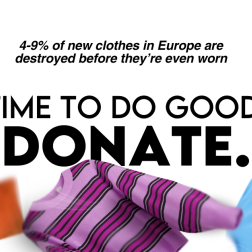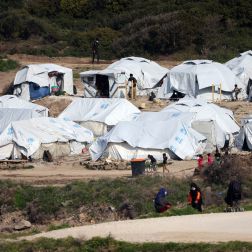
- 8 mins read time
- Published: 19th November 2024
What Questions to ask politicians canvassing
Do you want to push political candidates to work for an Ireland that is fair, equitable, and compassionate? Here are some questions you can ask candidates who want your vote, along with information to help you form your own questions on key issues like inequality, climate change, migration, development cooperation, and digital rights.
Tackling inequality by taxing the super-rich and windfall profits
-
Do you support a tax on wealth, taxing the super-rich to fight inequality and generate more money for public services?
The EU’s five richest billionaires have increased their wealth by 76% since 2020, from €244 billion to €429 billion. That sees their wealth growing at a rate of €5.7 million per hour. At the same time, 99% of the EU’s population has become poorer. This level of inequality is not sustainable. We need money for our public services and this should come from a tax on extreme wealth and on windfall profits.
Oxfam recommends that the next Irish government introduce a permanent tax on net wealth: A flat rate of 1.5% on all net wealth above €4.6 million OR a progressive tax of 2% on net wealth above €4.6 million, 3% on net wealth above €46 million and 5% on wealth above €923 million. We estimate that such a tax, if fully implemented, could yield over €4 billion a year.
-
Will your party introduce a windfall profits tax and close corporate tax loopholes?
While the cost-of-living crisis has impacted most people in Ireland, a number of big companies have been making record profits off the back of the Covid-19 pandemic and then the war in Ukraine. A windfall tax is an additional tax applied to big companies making sudden, big increases in their profits because of external circumstances like a war or a pandemic. It is only applied to companies with excessive profits, above a normal level. This is calculated by comparing profits in a previous period or based on an estimation of real costs.
Climate Justice
-
Will you introduce taxes targeting wealthy polluters by taxing the ownership and profits of polluting business/activities, especially luxury consumption (such as private jets, superyachts, SUVs, and frequent air travel)?
Fifty of the world’s richest billionaires on average produce more carbon through their investments, private jets and yachts in just over an hour and a half than the average person does in their entire lifetime. Only 1% of people are responsible for half of all airplane carbon emissions and sales of high-polluting private jets have doubled in the last two decades.
-
Will you ensure that Ireland meets our commitments of €225m per year of climate finance and increases this allocation to Ireland’s actual fair share? Ensure that Ireland’s climate finance is new and additional to any future increases in ODA (Overseas development assistance).
Adapting to climate change costs money. Climate finance supports investments covering both mitigation (avoiding or reducing emissions) and adaptation (changing or adapting to deal with the consequences of climate breakdown that are already happening). Historically, the countries who had most industry (countries in Europe and North America) are responsible for most of the emissions that have caused climate change. That is why, in 2009 at the Copenhagen COP (climate change conference), rich countries committed to mobilising $100 billion / year towards funding the costs of climate change in poorer nations, and to reach that annual target by 2020. This is money owed to the Global South by the countries who did most polluting. Shockingly, many rich countries are instead counting the loans they give as ‘climate finance’ (70% of climate finance is in the form of loans).
Migration
-
What will you do to make sure that the human rights of migrants, including asylum seekers and refugees are respected both in Ireland and at our EU borders?
By asking questions about protecting the human rights of people who move to Ireland or the EU you are sending a really important message to politicians that you want an Ireland of solidarity and that you reject divisive and hostile rhetoric and policies. We can see that most people in Ireland want to welcome migrants into our communities and this is reflected in surveys too: 76% of people in Ireland support helping asylum seekers, no matter what country they come from. Ireland has opted in to the EU Pact on Migration and Asylum and is currently drafting an implementation plan. The next Irish government should ensure that the Pact is implemented in a way that complies with human rights including by facilitating meaningful consultation with rights holders and people with lived experience of international protection on the implementation plans as well as with civil society organisations.
At too many of our EU borders, people who come to the EU seeking protection are beaten, robbed, illegally detained and pushed across the border denied their human right to seek asylum. The other EU member states stand by instead of holding perpetrators of fundamental rights violations accountable. The next Irish government should use our voice in the EU to protect the rule of law and human rights at our EU borders.
Official Development Assistance (ODA) and Humanitarian Crises
-
Will your party commit to enhancing humanitarian funding to forgotten emergencies both in quality and quantity and to meeting Ireland’s commitment of allocating 0.7% of national income (GNI) to Official development assistance?
Globally, the humanitarian system saw its widest funding gap on record in 2023. UN-backed appeals were only 45% funded. Ireland’s Budget 2025 failed to step up pace to achieve its 0.7% in ODA commitment. While this means mere numbers on paper, every failing in reality literally costs lives; or destroys the prospects for dignified ones.
Rights in a Digital Age
-
Are you committed to addressing key digital rights issues such as platform accountability, data protection and privacy, and transparency in the development and deployment of algorithms and other emerging technologies??
Digital tools, networks, platforms and services continues to expand, impact and, in some cases, redefine nearly every aspect of daily human life. These technologies are enabling both targeted and mass violations of fundamental rights, spreading of misinformation and mobilising violence on an unprecedented scale. This most disproportionately impacts certain groups including women, LGBTQIA+ people, migrants and people living in poverty. The example of the recent spate of riots in Dulin and elsewhere where disinformation was spread online mobilising individuals and leading to violent incidents is a case in point. The rapid rise and evolution of artificial intelligence (A.I.) likewise heralds entirely novel ways in which society, work and human life can be further disrupted without adequate care and attention given to the possible negative outcomes. Meanwhile a handful of technology companies are consolidating massive corporate power with few meaningful regulations, low accountability and enormous profits that are chronically under-taxed.
The UN affirmed in 2012 and most recently in 2024 that the same rights people have offline, must also be protected online. Oxfam shares this view.
Gaza / Occupied Palestinian Territory and Israel
-
If elected, will you ensure that the next government introduce the Occupied Territories Bill at the earliest possible opportunity? Will you introduce new controls to allow for random searches and sampling of cargo of aircraft flying over Irish airspace and legislate for the sanctioning of aircraft in breach of international law?
We are witnessing a campaign of ethnic cleansing in Gaza. In its advisory opinion, the International Court of Justice (ICJ) concluded that Israel’s continued presence in the Occupied Palestinian Territory is unlawful and that it is under an obligation to bring to an end its unlawful presence “as rapidly as possible.” The Occupied Territories Bill would make Ireland the first EU country to ban the import and sale of goods produced in illegal Israeli settlements, which violate international law, specifically the Fourth Geneva Convention. Many experts argue that economic pressure can push countries to stop the slow and steady growth of Israeli illegal settlements in a constant land grab.
-
Are you committed to working at EU level to implement an EU-wide arms embargo to Israel as well as asking our US allies to cease this lethal trade? Will you use our voice in the EU to make sure the EU-Israel trade agreement is immediately suspended?
-
Will you push for open, unrestricted access to humanitarian aid in all of Gaza, especially the North that has now been strangled out of any aid for more than 40 days?
Over the past month Israeli forces have accelerated their efforts to bombard, depopulate, deprive and to erase the Palestinian population of northern Gaza. Israeli military operations have denied Palestinians critical food aid and basic necessities, which has, in turn, caused conditions approaching famine for 800,000 civilians across Gaza. For more than a month now, zero aid has reached North Gaza and only a trickle to the rest of the strip. It is a crime against humanity to unleash famine upon a population, which Israel has done. Ireland has an opportunity and a responsibility to take a strong stand. Ireland needs to continue to champion UNRWA and those humanitarian organisations who continue to work on the ground in Gaza despite the conditions.
Circular Economy
-
Will you support community organisations doing reuse and repair actions and ensure these are accessible to the community?
-
Will you hold producers accountable for what happens to the products they make, at the end of their life. Will you incentivise companies to make their products durable, repairable and recyclable?
Ireland has an opportunity to lead by example in addressing the urgent challenges of waste, overproduction, and overconsumption through the adoption of circular economy principles. Textile reuse contributes to carbon emission targets. We are calling for action to prioritise reuse, repair and recycling. Without comprehensive policy support, Ireland risks falling short of its potential to meet environmental and social objectives.




